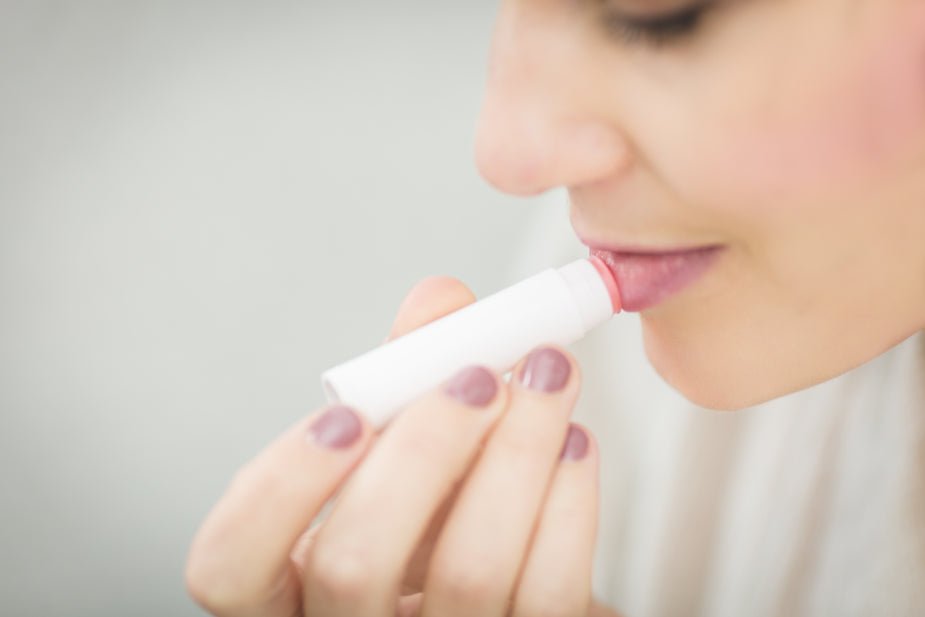As winter arrives with its chilly winds and frosty temperatures, our skin often takes the brunt of the season’s harsh conditions. One of the most delicate areas prone to dryness is our lips. The cold, dry air can strip away moisture, leaving our lips cracked, chapped, and in desperate need of extra care. Fear not, for with a thoughtful and consistent lip care routine, you can keep your pout soft, supple, and ready to face the winter wonderland.
We’ll explore the reasons behind winter lip dryness and unveil a step-by-step approach to nurturing your lips during the colder months.
Why are lips dry in the winter season?
Before diving into the solution, it’s essential to understand why our lips become dry and chapped during winter. Several factors contribute to this seasonal woe:
- Lack of Humidity: Winter air is often dry, and indoor heating systems further reduce humidity levels. The low humidity can suck moisture from your lips, leaving them dehydrated.
- Wind Exposure: Cold winds can strip away the natural oils on your lips, making them more susceptible to dryness and cracking. Windburn is a common issue during winter months.
- Dehydration: Cold temperatures can sometimes discourage us from drinking enough water. Dehydration not only affects our overall health but can also manifest as dry, chapped lips.
- Sun Exposure: Although the sun might not feel as intense during winter, it can still contribute to lip dryness. UV rays can damage the delicate skin on you
How Do You Take Care Of Dry Lips In Winter
1. Hydration from within
Combatting dry lips isn’t just about external care; internal hydration plays a crucial role. Ensure you’re drinking an adequate amount of water throughout the day to keep your body and lips hydrated. Herbal teas and hydrating foods like water-rich fruits and vegetables can also contribute to your overall hydration levels.

Reduce your consumption of beverages that can contribute to dehydration, such as caffeinated and alcoholic drinks. If you indulge in these beverages, balance them with increased water intake.
You May also like: Winter dehydration
2. Keep Moisturizing
Make it a habit to apply lip balm regularly throughout the day. Carry a travel-sized balm in your pocket or purse, so you can reapply whenever your lips feel dry. Aim for at least every two hours, or more often if you’re exposed to particularly harsh conditions.

Look for ingredients such as hyaluronic acid, shea butter, and vitamin E, known for their moisturizing properties. Avoid balms with potential irritants like menthol or camphor, as they may exacerbate dryness.
3. Avoid Liking Your Lips
The act of licking removes the natural oils present on your lips, making them more susceptible to dryness and chapping.

Replace the habit of licking with applying a hydrating lip balm. Keep a lip balm handy and reach for it whenever you feel the urge to lick your lips.
4. Gentle Exfoliation
Exfoliating once or twice a week will help your lips absorb moisturizing products more effectively. Consider exfoliating your lips in the evening or before bedtime. This allows your lips to absorb the moisturizing benefits of your lip balm overnight.

Create a DIY lip scrub by mixing a teaspoon of brown sugar with honey or coconut oil. Gently massage this mixture onto your lips in circular motions for about a minute, then rinse with warm water.
Also read: Importance of exfoliation
5. Try Home Remedies
Home remedies, when used consistently, can contribute to keeping your lips naturally moisturized and healthy during the winter season.

- Apply a small amount of virgin coconut oil directly to your lips. Leave it on to absorb and moisturize.
- Mix equal parts honey and aloe vera gel. Apply the mixture to your lips and leave it on for 15-20 minutes before gently wiping it off.
- Apply a small amount of fresh milk cream (malai) to your lips and leave it on for 15 minutes. Wipe off gently with a damp cloth.
- Place thin slices of fresh cucumber on your lips for 10-15 minutes. This can be a quick and refreshing remedy.
6. Apply Sunscreen
Opt for a lip balm that specifically includes sun protection factor (SPF). Look for at least SPF 15, but higher SPF values offer more comprehensive protection.

Avoid lip balms that contain potential irritants like menthol or camphor, especially in combination with high SPF.
Don’t forget to apply sunscreen to other exposed areas of your face, including the skin around your lips.
7. Lip Care Before Sleep
Before sleeping, be conscious of avoiding the habit of licking your lips. As mentioned earlier, saliva can evaporate quickly, leaving your lips drier.

Ensure you’re well-hydrated throughout the day. Dehydration can contribute to dry lips, so drinking enough water is essential for overall skin health, including your lips.
Place a humidifier in your bedroom to add moisture to the air. This helps prevent your lips from becoming overly dry, especially if you live in a dry climate or use heating during the winter.
Choose a balm with ingredients like beeswax, shea butter, or coconut oil. This acts as a sealant, locking in moisture and preventing your lips from drying out while you sleep.
Additional tips to keep your lips radiant during the winter season
1. Stay Mindful of Your Diet
- A balanced diet rich in vitamins and minerals contributes to overall skin health, including your lips. Include foods high in omega-3 fatty acids, and vitamins A and C, and stay hydrated with water-rich fruits and vegetables.
2. Avoid Harsh Weather Conditions
- In extreme weather conditions, especially cold and windy environments, use a scarf or a high-necked jacket to shield your lips from harsh winds and cold temperatures.
3. Limit Spicy and Salty Foods
- Spicy and salty foods can sometimes irritate the delicate skin on your lips. If you notice increased sensitivity or dryness, consider reducing your intake of these foods.
4. Lip Exercises
- Gently massage your lips with your fingertips to stimulate blood flow. This can contribute to a plumper appearance and help maintain lip health.
5. Use a Soft Toothbrush for Exfoliation
- If you prefer using a toothbrush for exfoliation, choose one with soft bristles. Gently brush your lips in a circular motion to remove dead skin cells.
6. DIY Lip Masks
- Experiment with different DIY lip masks using natural ingredients like yogurt, avocado, or even mashed strawberries. These masks can provide additional vitamins and antioxidants to nourish your lips.
7. Lip-Friendly Toothpaste
- Some toothpaste ingredients can be harsh on the lips. If you notice dryness or irritation around your mouth, consider using a lip-friendly or natural toothpaste.
8. Protect Lips During Outdoor Activities
- If you engage in outdoor activities like hiking or skiing, use a sports lip balm with higher SPF and water resistance to protect your lips from both sun and wind.




